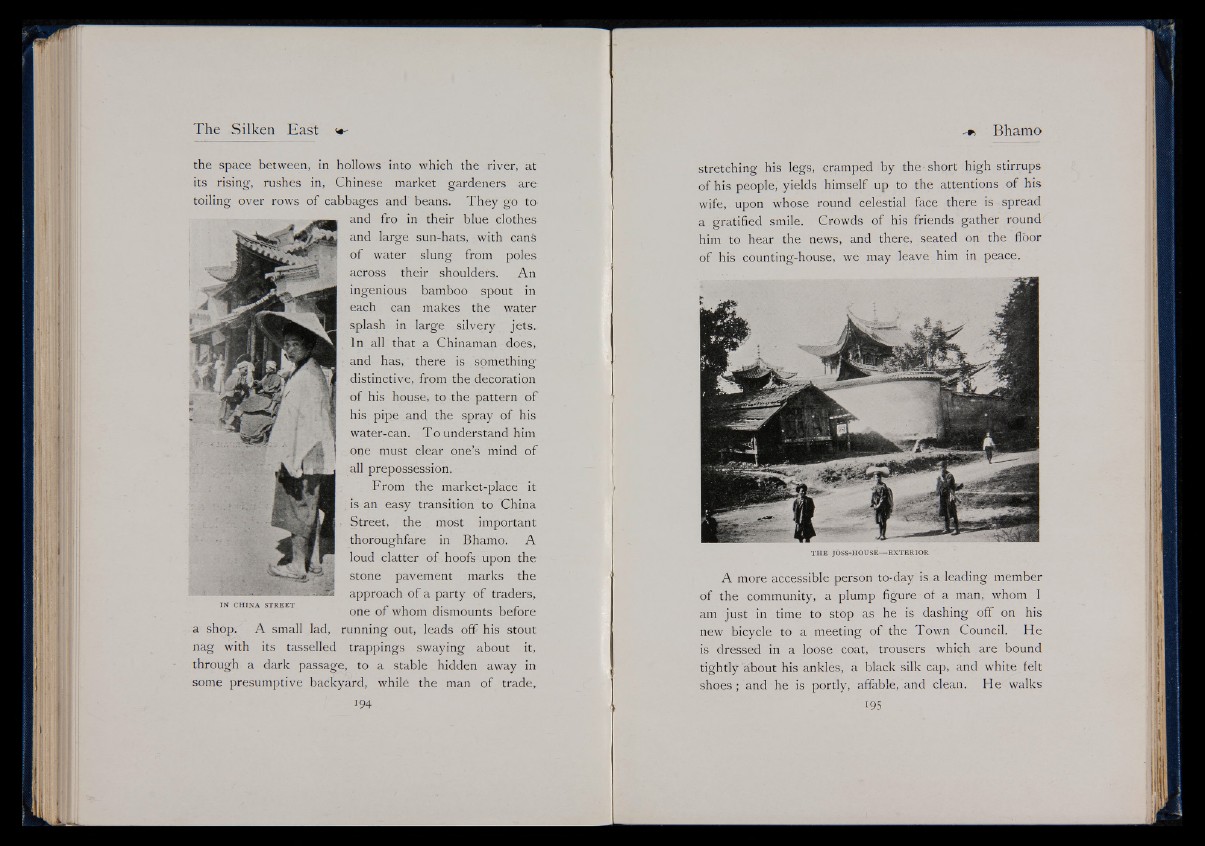
the space between, in hollows into which the river, at
its rising, rushes in, Chinese market gardeners are
toiling over rows of cabbages and beans. They go to
and fro in their blue clothes,
and large sun-hats, with cans
of water slung from poles,
across their shoulders. An
ingenious bamboo spout in
each can makes the water
splash in large silvery jets.
In all that a Chinaman does,
and has, there is somethingf
distinctive, from the decoration
of his house, to the pattern o f
his pipe and the spray of his
water-can. To understand him
one must clear one’s mind of
all prepossession.
From the market-place it
is an easy transition to China
Street, the most important
thoroughfare in Bhamo. A
loud clatter of hoofs upon the
stone pavement marks the
approach of a party of traders,.
IN CH IN A ST R E E T r 1 i r one or whom dismounts before
a shop. A small lad, running out, leads off his stout:
nag with its tasselled trappings swaying about it,
through a dark passage, to a stable hidden away in
some presumptive backyard, whil6 the man of trade,
stretching his legs, cramped by the-short high stirrups
of his people, yields himself up to the attentions of his
wife, upon whose round celestial face there is spread
a gratified smile. Crowds of his friends gather round
him to hear the news, and there, seated on the floor
of his counting-house, we may leave him in peace.
TH E JOSS-HOUSE— EXTERIOR
A more accessible person to-day is a leading member
of the community, a plump figure of a man, whom I
am just in time to stop as he is dashing off on his
new bicycle to a meeting of the Town Council. He
is dressed in a loose coat, trousers which are bound
tightly about his ankles, a black silk cap, and white felt
shoes; and he is portly, affable, and clean. He walks